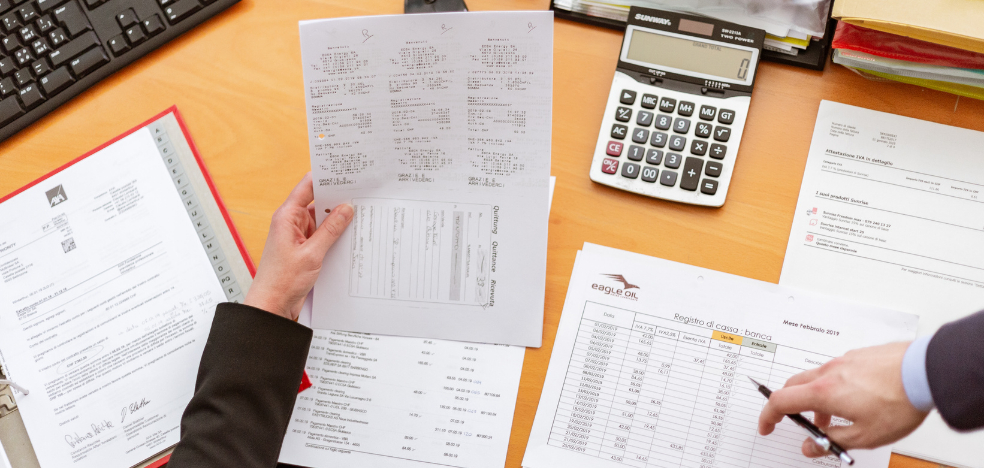How to Set Up a Limited Company


Wanting to set up a limited company, but not sure how to go about it?
Our step-by-step guide will talk you through the whole process, from deciding on a name to gathering your paperwork and registering your new company.
A limited company is a type of legal structure for a business.
There isn’t a legal distinction between a sole trader and their business, making them personally liable for business debts when if things go wrong.
In comparison, a limited company has a legal identity completely separate to its shareholders and directors.
Read on to find out how to set up a limited company, as well as the benefits and costs that come with it.

As outlined above, a limited company is its own separate legal entity. This means the company would be liable if something goes wrong, not you personally. This means you’d only lose what you put into the business
As a limited company, you pay Corporation Tax through your business, and pay yourself in salary and dividends. This could prove to be more tax-efficient in the long run than setting up as a sole trader.
Your customers may view you as being more professional if you operate as a limited company. It may also make it easier to find suppliers, investors and even sell your business.
Registering your limited company through Companies House costs £15. However, you should also bear in mind the day-today costs that come with running your business – such as hiring an accountant or keeping up to date records.
Operating as a limited company comes with more legal responsibilities and more admin to keep on top of. When deciding whether to operate as a limited company or a sole trader, it’s important to consider how you want to operate.
Companies House will publicly display information about your limited company, including your directors and earnings.

The first step to becoming a limited company is making sure it’s the right thing for you to do in the first place.
Over half of businesses in the UK operate as sole traders, it’s easier to set up this way and comes with very few legal responsibilities – making it the ideal structure when starting a business quickly.
However, as we’ve mentioned, a sole trader will be personally liable if something goes wrong, and it can also be less tax-efficient.
Consider your business, how you’ll be operating and the risks involved. You can read more about the difference between a sole trader and a limited company here.

You’ve decided a setting up a limited company is the right thing for your business, so what’s the next step?
No two limited companies are allowed to share the same name, so it’s time to think of an original name for your business.
If you’ve already been operating as a sole trader, you should consider the name you’ll be trading under and try to relate the two if you can.
It could also be useful to check if your chosen business name is available as a URL, in case you want to set up a company website.
Companies House do have some rules; they won’t allow anything offensive and they also have a list of sensitive words and phrases you can’t use.
A limited company needs at least one director, but there’s no limit on the number of directors a company can appoint.
The director must be 16 or over, and they will be taking on both legal and financial responsibilities.
Here’s what Gov.uk say a director must do:
Avoiding these responsibilities can lead to penalties and even prosecution.
You should consider employing a good accountant and ensure you have the right insurance to protect your business.
A limited company will also need at least one shareholder. A shareholder can also be a director.
If you’re a small business, this might mean you are the only shareholder – owning 100% of the business.
That being said, a limited company can have as many shareholders as you like.
When you register, you’ll need to give the following information about the shares and how they’ve been issued:
Often, a new small limited company will issue 100 £1 shares and pay £100 into the bank when incorporating. These shares can then be split between the chosen shareholders.
What is a person with significant control?
When you register as a limited company, you’ll need to identify the people with significant control (or PSC) in your business.
Companies House outline PSCs as the following:

These documents outline how you’re going to run your limited company.
The memorandum of association is a legal document that your initial shareholders' sign, agreeing to form the company. It is automatically created when you register your company online.
The articles of association are written rules about running the company which are agreed on by the directors and shareholders.

When running a limited company you will need to keep:
Failure to keep accounting records could lead to fines of up to £3,000 or to disqualification as a company director.
Your company records should include information about the business’s directors, shareholders and secretaries as well as:
Your financial and accounting records should include information about all the money your business has spend and received, alongside:
You will also need to file a company tax return – which will be made much easier if you ensure you keep accurate financial records.
Gov.uk says that records should be kept for around six years form the end of the last company financial year they relate to. This being said, you might need to keep these for longer if, for example, you buy something that you expect to last for more than six years.
Congratulations! You’ve followed all of the above steps and you’re now ready to register your company with Companies House.
You can register via the Companies House website for £15, or through a variety of incorporation websites. If you’re using an accountant, the cost may even be covered as part of their limited company accounting packages.
When registering your business, you will need to choose an official address as well as a SIC code (the code that identifies what your company does).
You will also need to provide the residential address of each director and a statement of capital – which is a description of the share structure of your business.
Now you know how to set up a limited company. Are you interested in owning your own business? Start the search for your dream business today.
Now you know how to set up a limited company. Are you interested in owning your own business? Start the search for your dream business today.
Get quick and easy insight into the real value of your business, without any obligations.
At Intelligent, all of our experts use a specific formula that will give you a free and highly accurate baseline valuation so that you've got a figure to work with that most realistically resembles the value of your business.